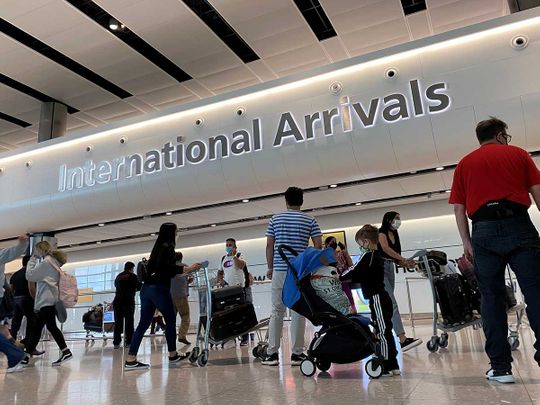In response to the escalating monkeypox (Mpox) outbreak in parts of Africa, the Federal Ministry of Health has issued a new directive requiring all travelers entering Nigeria to complete and submit a health declaration form. This measure, which took effect on August 11, 2024, applies to passengers arriving at airports in Abuja and Lagos.
The mandatory health declaration form is part of a broader effort to curb the spread of Mpox, particularly as a new, more transmissible variant of the disease, known as Clade Ib, is emerging. This variant has been identified mainly in the Democratic Republic of Congo and has spread to Rwanda, Uganda, and Kenya since mid-July 2024. The Africa Centre for Disease Control (ACDC) has noted a sharp increase in Mpox cases across the continent, with a rise of 79 percent from 2022 to 2023 and a further 160 percent increase from 2023 to 2024.
Travelers entering Nigeria can complete the health declaration form online before departure or fill out a physical copy upon arrival. The Ministry of Health has urged all passengers to submit the form online to avoid delays at entry points. The form requires travelers to provide personal details, as well as information on their recent travel, health, and contact history within the 21 days leading up to their arrival in Nigeria.
This directive aligns with the World Health Organization’s (WHO) concern over the unprecedented rise in Mpox cases in Africa this year. The WHO is considering convening an expert committee to advise on whether to declare an international public health emergency, similar to the global response during the Mpox outbreak in 2022.
The Federal Ministry of Health emphasized that this measure is crucial for preventing the importation and spread of infectious diseases, thereby protecting the health of all Nigerians. Airlines have been instructed to ensure passengers complete the health declaration form before boarding flights to Nigeria, with British Airways among the carriers informing their customers of this new requirement.
As Mpox continues to pose a significant public health threat across Africa, the Nigerian government remains vigilant in monitoring and controlling potential outbreaks within its borders.
















